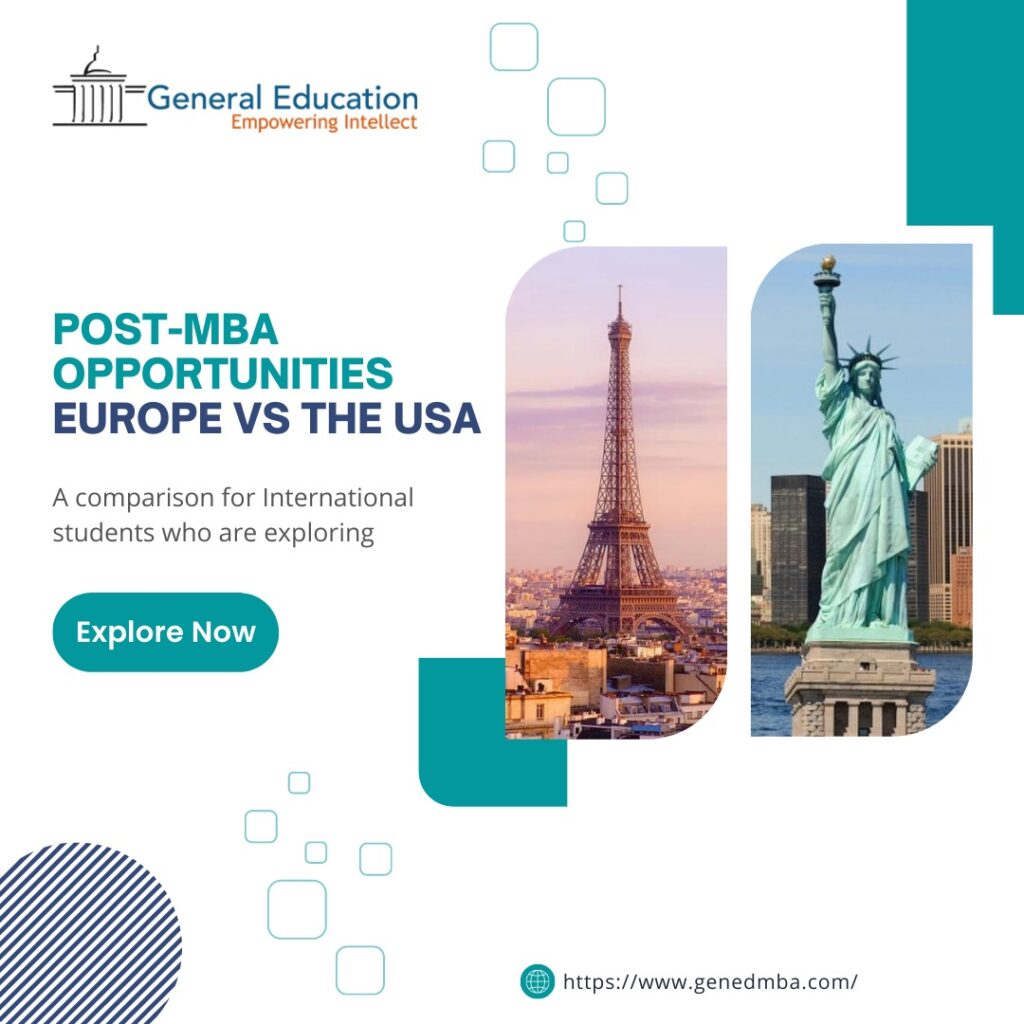
There are a few variables to consider while considering whether an MBA in Europe will assist you with achieving your career objectives. From the cost, program length, brand value, and more, in this article we will explore the options.
The advantages of European MBA programs over US MBA programs
- Lower Cost
In the first place, European MBA programs have a lower cost, as most last only one year. For instance, you can finish an MBA program at INSEAD in just ten months. Compared with a two-year duration of a US MBA program, lower educational costs and opportunity costs look inviting for international applications.
Even for the lengthier EU MBA programs, for example, London Business School (15 – 18 months) and IESE Business School in Spain (15-19 months) , tuition fees are lower. In a study of SBC’s EU candidate pool, 48% referred to reasons, for example, limited length of study and lower educational costs.
- Global Experience
European MBA programs are more global in nature, contrasted with even the most recognized US program. They draw in applicants who need a really global exposure in their education. They additionally attract applicants intending to work in Europe after their undergrad.
An MBA in Europe is a brilliant complement to a college degree acquired in the US. It positions applicants for global professions better than doing both undergrad and an MBA in a similar nation or continent.
In the event, that your career objective is to live and work in Europe, chasing after an MBA abroad is seemingly the best prologue to a successful business career. Remember this fact: INSEAD, LBS, and HEC Paris place under 10% of graduates into US-based work jobs. On the other hand, they place 50-to-66% of graduates in Europe.
- Specialized Job Opportunities
The new two-year, stay back option on a study visa, which is implemented in the UK for global applicants graduating in summer 2021 or later, will make it simpler for new MBAs to secure positions and for managers to recruit them.
MBA aspirants may likewise incline toward specific industry enrolling where the EU has the edge over the US. While the US is the innovation business center point (tech is as yet a developing market in the EU), Europe overwhelms the fintech business. London is considered the fintech capital of the world due to the banking passport legislation across 27 member nations.
Europe enjoys an upper hand over the US in the fintech business on the grounds that the US should battle with regulation that differs by state and can be an obstacle to computerized banking.
- Higher Acceptance Rates
For some MBA candidates, the acceptance rates of the schools are another variable. We have seen better admission chances for top EU programs comparable with the M7 top US programs for an average candidate.
For the most part, EU schools are more open to having higher rates of worldwide applicants, especially from Commonwealth nations (e.g., India). US schools have more competition for those who come from overrepresented candidate pools.
The advantage of US MBA programs over European MBA programs:
The brand value matters. Top schools like Harvard, Stanford, Wharton, and others are popular on the grounds that top MNCs source their workforce from these applicant pools. This is particularly basic for applicants wishing to make industry or potential career switch post-MBA.
Job potential is the key benefit that US MBA programs have over European (EU) schools. Candidates exceptionally favor top US MBA programs across the profession-related qualities of brand value, job enrolment, and organizing when compared with EU programs.
Industry switchers additionally favor the US MBA program. Many consider the depth of coursework and scholarly thoroughness better in a two-year, top US program. Furthermore, for some, US-based candidates, it’s only a question of logistics.
Do you need a class that is US-based or globally prevailing? In case, your inclination is less US undergrad (10%) and a prevailing (90%) international undergrad class, programs in the EU, for example, INSEAD, LBS, and HEC Paris are phenomenal decisions. On the other hand, if you favor a US peer group with around 30% international applicants, US MBA programs are your best fit.
Finally, think about where you need to reside upon graduation. INSEAD, LBS, and HEC Paris place under 10% into US-based business jobs and some more, at 50-to-66%, into Europe. Assuming you like to work in the US, the US MBA programs overwhelm you with 87-to-89% placement to the US.